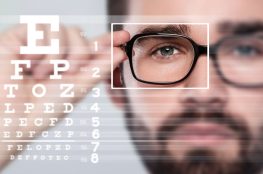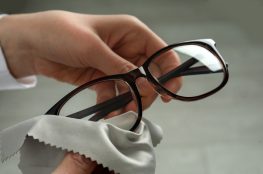Use of Coloured Lenses for Vision Issues
Coloured lenses offer some benefits. They can be used to manage some specific vision problems, or they can be used to make us more comfortable in some environments.
Light Sensitivity (Photophobia)
Coloured lenses, such as rose or grey tints, can help reduce glare and improve comfort for individuals with light sensitivity.
Dyslexia and Learning Disabilities
Some studies suggest that coloured overlays or lenses can help reduce visual stress and improve reading speed and comprehension in individuals with dyslexia and other learning disabilities. However, this is still controversial and unproven.
Migraine and Visual Stress
Certain tints, like FL-41 (a rose-coloured tint), seem to reduce the frequency and severity of migraines and visual stress in some individuals. It is important to find the underlying cause of the headaches, which can be related to anything from jaw misalignment to stress to poor eyesight. Prescription glasses, contacts and tinted contacts can help many, but not all, people who suffer headaches.
Colour Vision Deficiency
Specially designed tinted lenses can enhance colour discrimination for many individuals who suffer some forms of colour blindness, allowing them to perceive colours more accurately. This improvement is due the way the rods and cones in the eyes function. The rods provide black and white vision. The colour vision comes from the three different types of cones, which are sensitive to red, blue or green light. Problems occur in some colour-blind individuals where some colours simultaneously activate two different types of rod. This makes two different colours seem similar or identical. For example, Red and green might look the same. But by using glasses or contact lenses that filter out a narrow band where two different colours overlap we can make those different colours appear more distinct.
Post-Concussion Syndrome
Coloured lenses can help alleviate symptoms such as light sensitivity, headaches, and visual discomfort in individuals recovering from concussions. The symptoms of a concussion might last anything from a few weeks to a year. A patient should report any concussion to their optometrist (as well as to any other medical practitioner) as any concussion will have at least some impact on eyesight.
Blue Light Filter Glasses
These are not really tinted lenses, they look clear, but their use is worth discussing. Blue light glasses are designed to filter out a portion of blue light emitted by digital screens, such as those on computers, smartphones, and televisions. Blue light, which is part of the visible light spectrum, has a short wavelength and high energy. Excessive exposure to blue light, especially during the evening, can interfere with the body’s natural sleep-wake cycle by reducing the production of melatonin, a hormone that regulates sleep.
The lenses in blue light glasses either block or absorb blue light, preventing it from reaching the eyes. This can help reduce eye strain, fatigue, and discomfort associated with prolonged screen time. Additionally, using blue light glasses may improve sleep quality for those who use electronic devices before bedtime. While research on the long-term benefits is still ongoing, many users report relief from digital eye strain and better sleep patterns after using blue light glasses.
Blue blocking lenses can be helpful in environments that expose us to a lot of glare. This includes snow skiing and many water sports.Regular lenses can often be given a coating to turn them into blue blocking light lenses.
Talk to Our Sydney Optometrist
Recognising the signs of vision issues early can significantly improve your quality of life and prevent more serious problems down the line. If you experience any of the symptoms mentioned above, it’s important to schedule an eye examination with your optometrist. With the right corrective measures, including glasses, contact lenses, and even specialised coloured lenses, you can achieve optimal vision and enhance your overall eye health.
Remember, regular eye check-ups are essential for maintaining good vision and detecting any issues early. Don’t wait until symptoms become severe; take proactive steps to ensure your eyes remain healthy and your vision stays clear. If you have any concerns about your vision, contact our Sydney CBD Optometrist to book an appointment. Your eyes deserve the best care!
Information Disclaimer
The content of this article is meant for informational purposes only and should not be considered a source of professional advice, recommendations, or endorsements. It is not a substitute for seeking expert guidance or making well-informed decisions based on individual circumstances. Although we strive for accuracy and reliability, we cannot guarantee the information's completeness or suitability for all situations. Readers are urged to verify facts, consult experts, and consider their own context before taking actions or decisions based on this content. No warranties, explicit or implied, are provided regarding the accuracy, timeliness, or completeness of the presented information. Relying on this information is at the reader's own discretion and risk. We encourage readers to consult relevant professionals or experts for advice tailored to their specific needs. Neither the author, publisher, nor any affiliated parties will be held responsible for errors, omissions, or damages resulting from the use or reliance on the information in this article.



